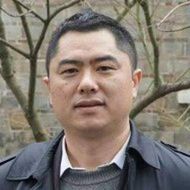A Chinese education: Why are Chinese parents and kids going to extremes?
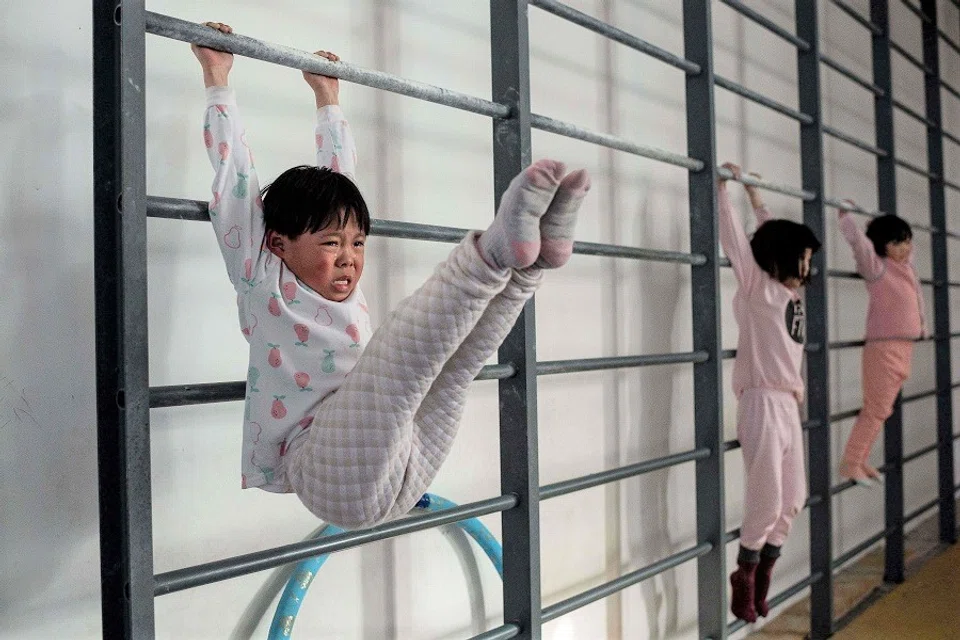
Because of the pandemic, the parent-teacher meetings for my elder daughter who is in the 5th grade have been postponed. Recently, they started up again.
The meeting I attended was a major affair, as if a war was imminent and the troops were being readied before the bugle sounds. The discussion was substantive as well. The teachers who presented and the students and parents who attended all came well-prepared.
Parents joining their kids on the hamster wheel
Sitting through the entire meeting, my sense was that the other children were extremely outstanding, the other parents were highly committed, and the teachers were very dedicated. Especially that stellar parent of a student from a previous cohort - her understanding of various policies on securing admission into top-tier high schools was incredibly impressive! Yes, you did not read that wrong - if you want to secure a place in a top-tier high school for your child, you have to start preparing when your child is just a fifth grader!
In that intense session, those who spoke up were mostly the parents of top students. As usual, I was part of the silent majority. Throughout those gruelling three hours, I watched their earnest faces and expressions, understanding their enthusiasm and anxiety. I sat in my daughter's usual seat in class, which was all too familiar yet strange.
In my daughter's eyes, the school is a colourful place of human relationships, love, hatred, warmth, and sadness - it is a wonderful world for her and her friends to explore. But tonight, this world became an adult world full of sharp edges, a world that lectures everyone and where everyone consents to being lectured.
After attending so many parent-teacher meetings, I know my place. Never again will I do what I did when my daughter was in first grade and I proposed that we should explore the essence of education. The ridicule I received then and the sullen silence that most parents maintain now have similar root causes. I know that parent-teacher meetings are meant for a certain group of people.
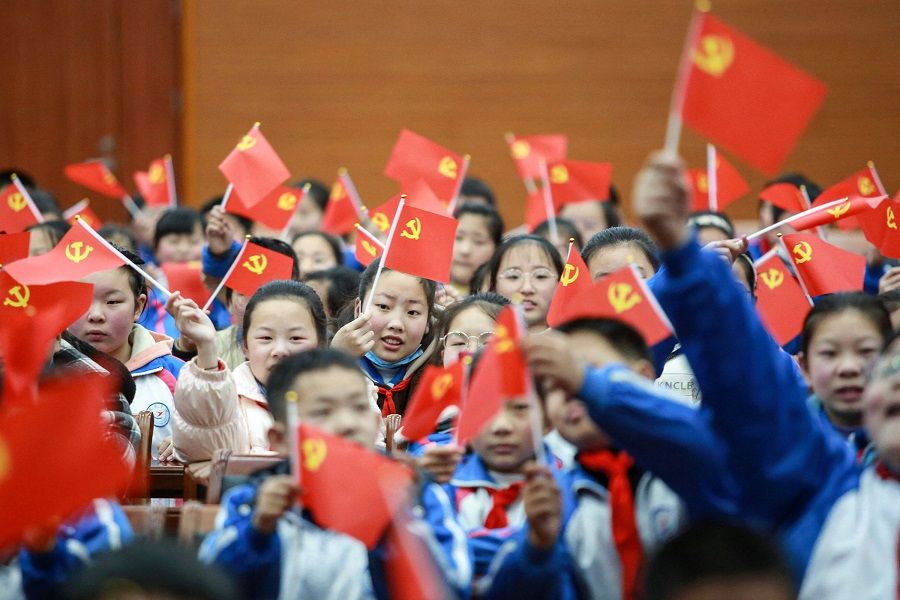
Right then, a round of applause jolted me from my thoughts. Looking at the professional and admirable teachers who were sincere and kind, I clapped enthusiastically too.
The word ji (鸡) refers to pumping their children with "chicken blood" (鸡血), or not wasting a single opportunity to improve. Jiwa is getting one's child to study and learn, while ziji (自鸡) is learning and studying on one's own.
The jiwa phenomenon
At the meeting, the impression I had of the parents with outstanding offspring reminded me of a popular internet slang "Jiwa xian ziji" (鸡娃先自鸡). This roughly means: "Before parents give their children chicken blood, they should first educate themselves."
What is jiwa (鸡娃, literally "chicken/hen" and "baby/child", or a "chick")? This is the number one euphemism of the jiwa world. Jiwa refers to a teaching method that has made the rounds among parents in Beijing, Shanghai, Guangdong and Shanghai in recent years. Ordinary children are called qingwa (青蛙); children who are gifted in one or more areas are called niuwa (牛蛙); and children who attend various classes (piano, weiqi, art) that help in nurturing their emotional intelligence are called suji (素鸡). Jiwa refers to the behaviour of "tiger mums" or "wolf dads" who constantly sign their children up for all sorts of classes and activities and who ensure that their children study well and do not slack off. So, jiwa is a verb. The word ji (鸡) refers to pumping their children with "chicken blood" (鸡血), or not wasting a single opportunity to improve. Jiwa is getting one's child to study and learn, while ziji (自鸡) is learning and studying on one's own.
Lessons from the old days
I lived in a small agricultural town in the northern part of China when I was little. Residents there were mostly farmers who had lived there for generations. While the town was a dynamic and complex society where there were minor conflicts and misunderstandings, life was relatively quiet and calm. When I was young, I barely witnessed any instances of the jiwa phenomenon. Back then, few people could enter university. Each person who did became the protagonist of a legend that would live on for a long time.
To be precise, the idea of attending university was a distant prospect. Because so few people achieved it, anyone who made it to a secondary vocational school or a secondary normal school would be the envy of his or her neighbours. But people always said at the end of these stories, "This kid likes to read books and is self-motivated. What can we do about it?" To people in the town, those who made it to university must have been reincarnated from imperial scholars in the past and were fated to enter university.
... Is it that this generation of parents are unsuccessful and thus want to push their children to succeed in their stead?
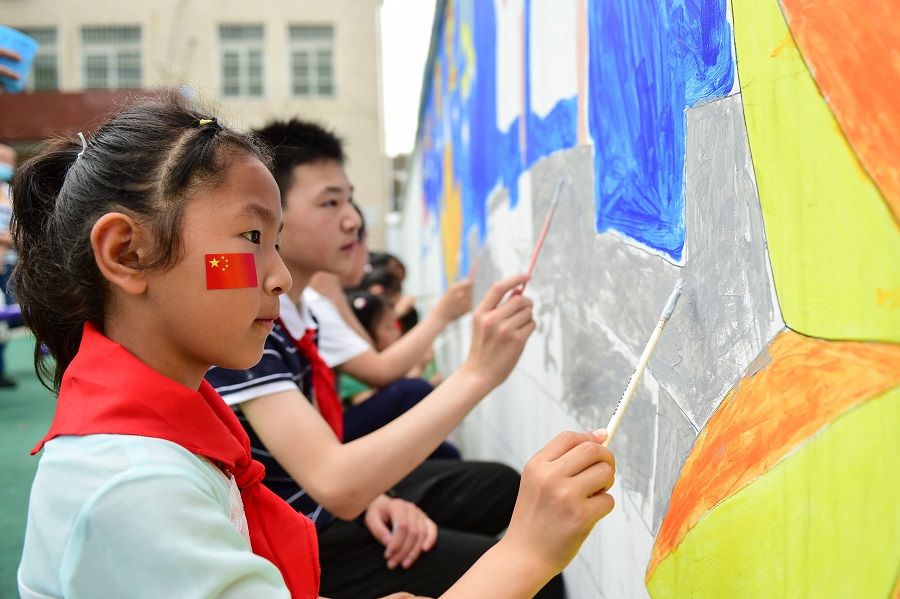
Many years later, not only did I become the first university undergraduate in my town, I set the record for many "firsts" in the town as well: I was the first master's student, the first PhD student, the first professor, the first overseas postdoctoral researcher, and the first PhD supervisor. I naturally became a legend myself. Honestly though, this was not the result of jiwa, but of ziji instead. The biggest expectation my parents had of me was that I would graduate from high school and be qualified to take over my father's job at a coal mine in Yuxi (豫西). When I was in primary five or six, I became obsessed with all sorts of novels and my results were very poor.
I don't know what happened when I went to secondary school, but it was like I was suddenly enlightened or maybe I deeply feared walking in my father's footsteps. I vowed to make a life for myself outside that town. I studied hard, kept myself motivated and became who I am today. My childhood experience taught me that parents of that era mostly had a laid-back attitude when overseeing their children's studies. As long as the kids were able to complete their homework, that was good enough. I did not witness parents pumping their children with "chicken blood" at all.
But today, we hardly see this anymore, be it in the cities or villages. Now, the country is sucked into a crazy jiwa wave. What has happened? Is it that this generation of parents are unsuccessful and thus want to push their children to succeed in their stead?
Economists generally do not assume that their research subjects, that is, decision-making subjects, would easily change their preferences. Thus, this generation and the previous generation should have similar preferences. This is known as the assumption of stable preferences. So, why is there such a big difference in people's behaviour across different generations? If all individuals seek to maximise their utility, economists believe that the best way for them to do so would change as external constraints change. Thus, the reason why this generation's behaviour is different from the previous generation's is because they have different assumptions.
Sign of the times
In the 1980s and 1990s, going to university was a way to climb up the social ladder. But in reality, this was quite an obscure path as the number of openings each year was limited and people did not take this route too seriously. Thus, back in the day, secondary vocational and normal schools that equipped students with useful skills were more highly valued by the average student.
Different types of schools suited different students' needs - with such diversification, everyone was covered and everyone's direction in life was different. Students who were especially intelligent and motivated would enter university, while mediocre ones would enter vocational schools. But they would all have a way out in life in the end. Furthermore, large-scale urbanisation was not yet prevalent and having a roof over one's head was not a great difficulty - it was taken for granted that everyone would own a house.
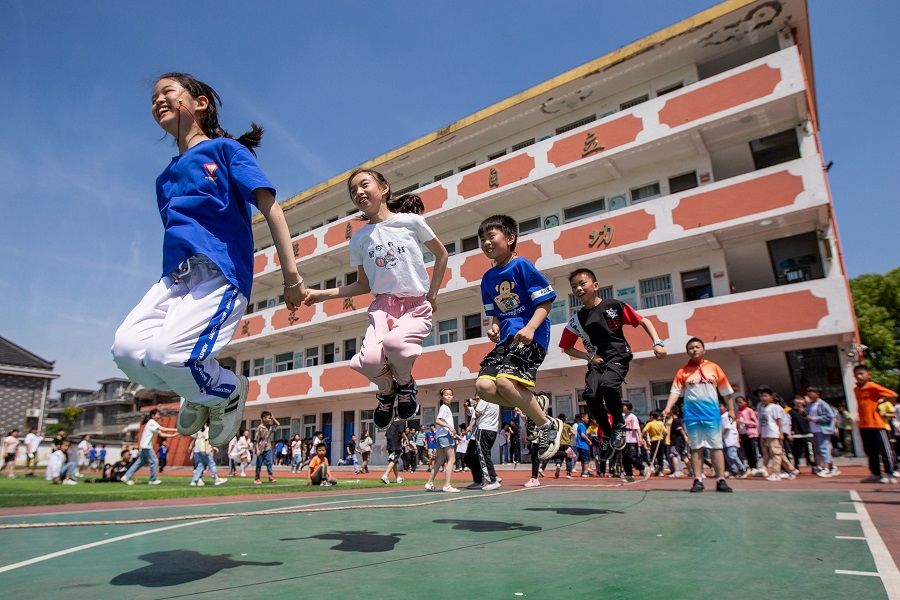
From around 1993, when I started having memories I could recall, I went to the county and city to attend high school. China's economic development took off then. Just as society was getting more vibrant, old social structures were being rebuilt and mobility between classes was pretty flexible. In the next 20 years, I witnessed an era of rapid progress in Chinese society, but social mobility was much tougher than before.
... it is a better prospect to either secure a spot or make it into a top-tier high school, get admitted into a top-tier university, then enter the upper class and get a bigger share of the pie. In truth, this may not be a question of choosing the more "attractive" choice, but really having no choice.
Fear propelled by decreasing social mobility
Today's parents realise that if their children fail to advance to a higher social class via gaokao (the National College Entrance Examination), hardly anything else can change their fate. This is not to say that they would be unable to find a job after graduating from vocational high schools or higher vocational colleges, but such jobs would be no different from the ones that other young people coming from outside the city can find. It would be extremely difficult to live in the city, buy a house, own a car or start a family if one relied on the meagre income of such jobs.
Under such circumstances, it is a better prospect to either secure a spot or make it into a top-tier high school, get admitted into a top-tier university, then enter the upper class and get a bigger share of the pie. In truth, this may not be a question of choosing the more "attractive" choice, but really having no choice. As social mobility becomes more rigid, young parents who moved to the cities some decades ago are worried that their children will fall out of their current social class. They hope that their children will gain access to a higher class, and this is what motivates them to inject their children with "chicken blood".
To scale the social ladder and ensure that they do not fall off or lag behind, young parents who have just found their place in society would naturally educate and upgrade themselves as well. To jiwa, they believe that they must ziji first to set a good example for their children. Thus, with both parties learning and studying together, parents and children toast each other with a cup of "chicken blood", creating the uncanny jiwa phenomenon.
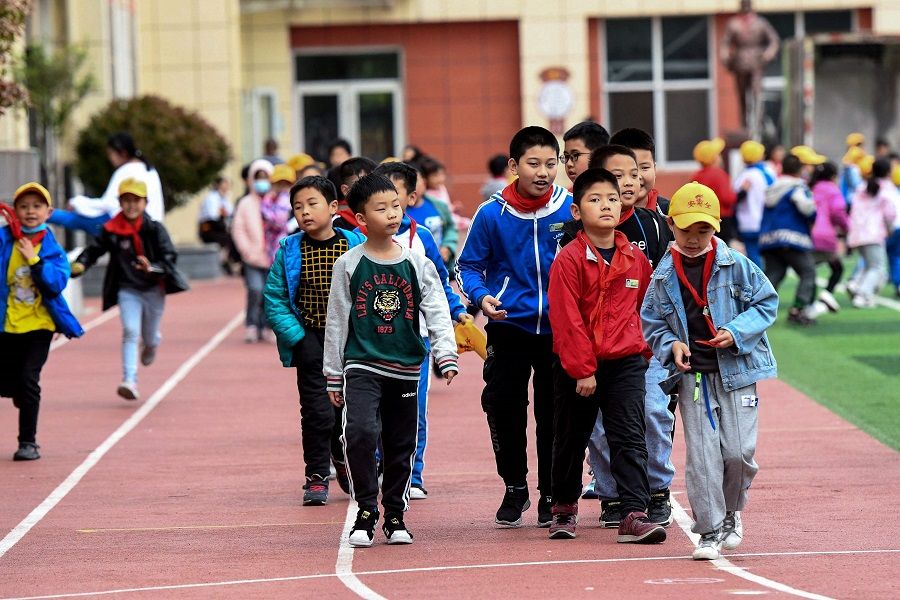
While this sort of mutual encouragement may seem to be positive and filled with passion and motivation, I think it actually belies a sense of helplessness, and is also not driven by the desire to build a better society. When all units of society - individuals, parents, and children - are sucked into a whirlpool of endless learning, is it really normal? Is it good?
Undoubtedly, whether society is normal or good is subjective. Economics calls for empirical evidence, that is, what the actual situation is and what causes the situation. Economics considers: if certain policy interventions are made, how would people's behaviour change, and how would the actual situation change? As for whether the social outcomes are good or bad, that involves making subjective value judgements. Even if economists do not avoid looking at such questions, they would be very circumspect when it comes to drawing conclusions.
Is ziji good? Should jiwa be practised? Economics has no answer. Economics also has no answer as to whether mutual learning and encouragement is a sign of proactiveness or a sign of not knowing what to do with life.
What economics can tell you is, ziji and jiwa are both the outcomes of changes in the level of social mobility. Profound changes in social structure and institutional conditions are behind these behaviours.
This article was first published in Chinese by Caixin Global as "神奇的生活经济学|疯狂"鸡娃""自鸡",是这届家长不行?". Caixin Global is one of the most respected sources for macroeconomic, financial and business news and information about China.
Related: Faster, higher, stronger: China's kids pushed to breaking point | 'Mother hens' in China: A phenomenon of East Asian attitudes to education? | Purple underwear and qipao - tips to ace China's gaokao | Stolen identities: Imposters rob poor Chinese youths of their university dreams | Chinese economics professor: Fathers are not inferior to mothers when it comes to parenting

